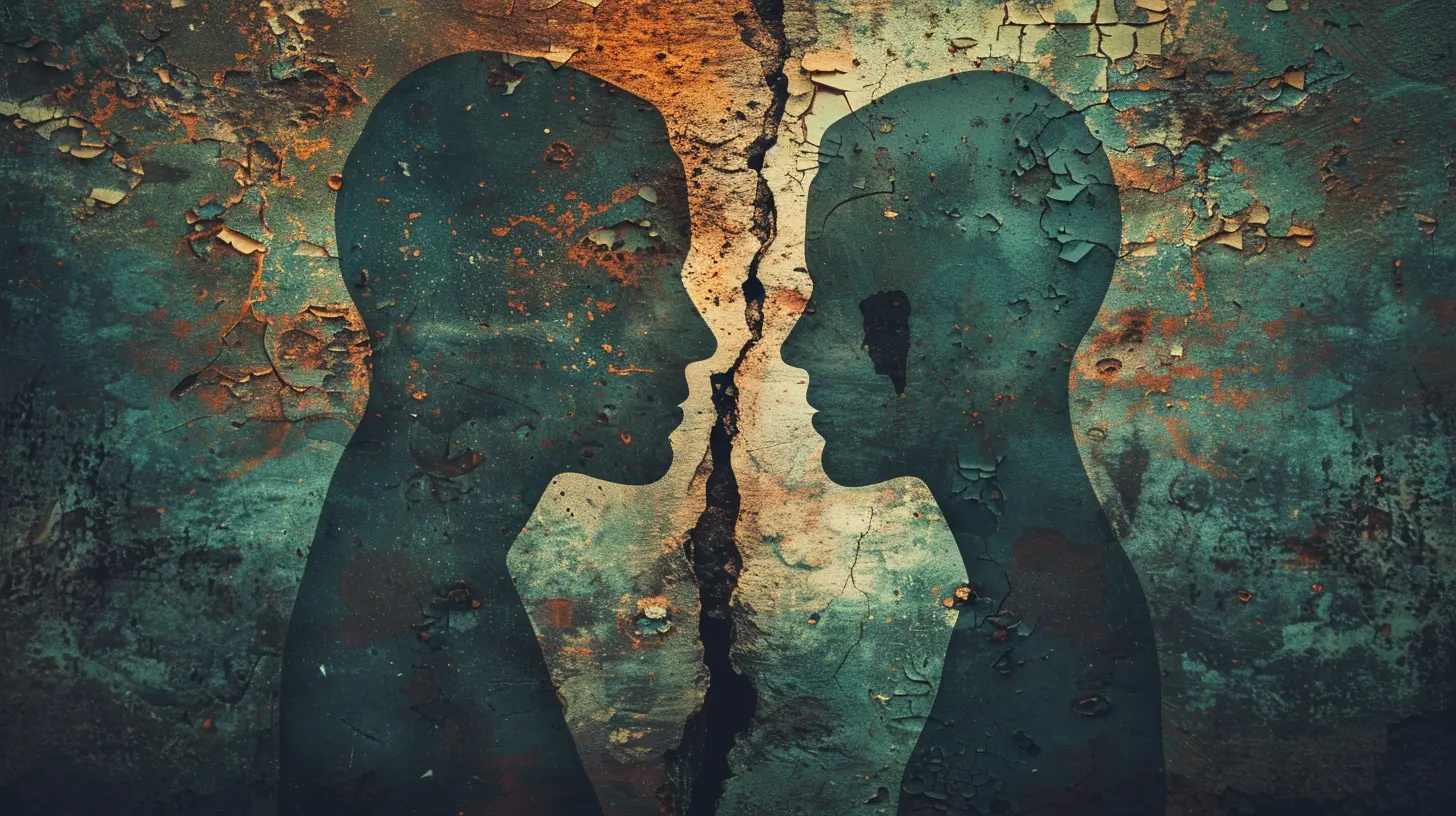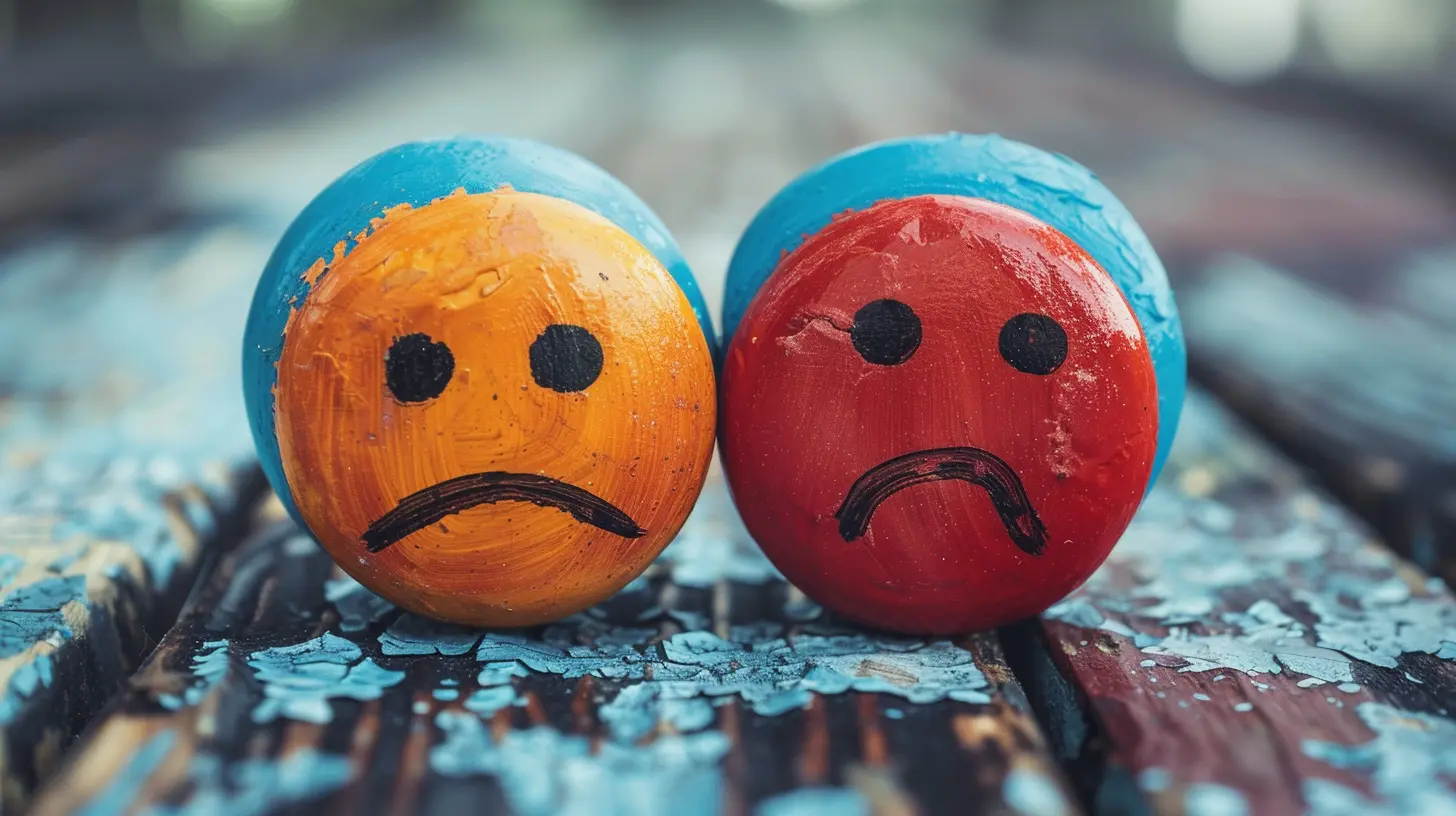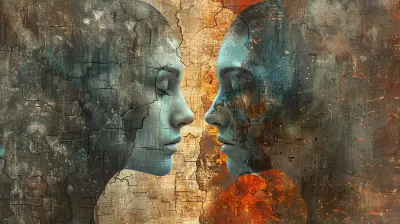The Psychology of Breakups: Why They're Hard and How to Heal
4 July 2025
Let’s be real—breakups suck. Whether you're the one who initiated it or the one blindsided by it, the emotional aftermath is often messy, confusing, and downright painful. But why do breakups hit us so hard? Why does it feel like your world is crumbling down, even if you knew the relationship wasn't perfect? And more importantly, how can you heal and move forward?
In this article, we’ll dive deep into the psychology behind breakups and explore effective strategies to help you heal. By understanding why breakups are so tough, you’ll find it easier to navigate through the pain and come out healthier and stronger on the other side.

The Emotional Rollercoaster of Breakups
Breakups mess with your emotions—big time. You might feel fine one moment and then, out of nowhere, you’re back to sobbing into your pillow or scrolling through old photos. Why is this emotional rollercoaster so intense?1. Attachment and Bonding
At the core of any breakup is the disruption of attachment. When you're in a relationship, you form a deep emotional bond with your partner. This bond taps into our primal need for connection. Psychologically, it’s similar to the attachment a child forms with their caregiver. When that relationship breaks, it can feel like an emotional amputation.Your brain actually gets used to the presence of your partner. You’re hardwired to seek comfort, validation, and love. So when the relationship ends, your brain doesn’t just let go of that attachment overnight. Instead, it goes into withdrawal—kind of like detoxing from an addictive substance.
2. Loss of Identity
In many relationships, people start to define themselves, at least in part, by their role as a partner. You become the “we” instead of just “me.” You share inside jokes, routines, and even future plans. When that relationship ends, it can feel like you're not just losing the person, but a part of yourself.Think about it: your daily routines change, your weekends are suddenly wide open (and not in a good way), and activities you once enjoyed feel hollow. You might even ask yourself, "Who am I without them?" This loss of identity can be incredibly disorienting and adds to the emotional turmoil.
3. Rejection and Self-Worth
Breakups, especially when you're the one being left, can hit your self-esteem like a freight train. It’s easy to take rejection personally, even if the relationship ended for reasons beyond your control. You start questioning your worth, wondering if you weren’t "good enough" for them to stay.Rejection triggers deep-seated fears of being unlovable or inadequate. These are rooted in our evolutionary psychology, where social rejection could have meant isolation from the group—literally a life-threatening situation back in the day. While a breakup today doesn’t mean you’ll be left to fend off wild animals on your own, your brain still reacts as if your survival is at stake.
4. Uncertainty and Anxiety
The end of a relationship often brings a wave of uncertainty. You might have had plans for the future—moving in together, traveling, or even getting married. All those plans are now up in the air, and you’re suddenly staring at an unknown future.This uncertainty can lead to anxiety. Our brains like predictability and routine because it creates a sense of safety. When that’s shattered, your mind can spiral, wondering, “What comes next? Will I ever find love again?”

The Science Behind Breakup Pain
It’s not just in your head; the pain of a breakup is very real. In fact, studies using brain imaging have shown that the emotional pain of rejection activates the same areas of the brain as physical pain. Yup, your brain can’t really tell the difference between a broken heart and a broken bone.1. The Role of Oxytocin and Dopamine
When you're in a relationship, your brain releases feel-good chemicals like oxytocin (the “love hormone”) and dopamine (the “reward chemical”). These chemicals make you feel happy, connected, and secure. In a sense, your brain becomes addicted to these pleasurable feelings, and your partner becomes the source of that high.During a breakup, those chemical surges stop. It’s like being cut off from your primary source of happiness and comfort. You may even go through withdrawal symptoms—like craving contact with your ex, obsessively checking their social media, or replaying good memories over and over.
2. Cognitive Dissonance
Even when you know the relationship wasn’t great, your brain can still struggle with conflicting feelings. This creates something called cognitive dissonance. On one hand, you know the breakup was for the best. On the other hand, you miss your ex and long for the relationship to continue. This push-pull dynamic can keep you stuck in a cycle of pain and confusion.
Stages of Breakup Grief
Most of us have heard of the five stages of grief—denial, anger, bargaining, depression, and acceptance. These stages don’t just apply to the loss of a loved one through death; they’re also relevant to breakups.1. Denial
Right after the breakup, you might find yourself in shock or disbelief. It’s hard to process that the relationship is over, and you may hold on to hope that things will work out. You might even text your ex, hoping for a response that suggests reconciliation.2. Anger
Once reality sets in, anger often follows. You might be angry at your ex, or at yourself, or even at the universe for pulling the rug out from under you. This anger can be empowering in some ways—it helps you start to emotionally detach from your ex.3. Bargaining
This is the stage where you might try to negotiate with yourself or your ex. You may think, "If I change, maybe they'll come back," or "Maybe we just need a break." Bargaining is a way to avoid the finality of the breakup, clinging to the possibility of reconciliation.4. Depression
When the reality of the breakup fully sinks in, feelings of loneliness and sadness can hit hard. This stage is often the most painful because it forces you to confront the loss head-on. You might isolate yourself, feel unmotivated, or struggle with day-to-day tasks.5. Acceptance
Acceptance doesn’t mean you’re suddenly happy about the breakup. It simply means you’ve come to terms with the fact that the relationship is over, and you’re ready to move on. This is the stage where true healing begins.
How to Heal After a Breakup
Okay, so breakups are brutal. But how do you heal from one? The good news is that while the pain might feel endless, you will get through it. Here are some strategies that can help you move forward.1. Allow Yourself to Grieve
First things first—let yourself feel the pain. It’s okay to be sad, angry, or even relieved. Suppressing your emotions will only prolong the healing process. Cry if you need to. Vent to a friend. Write in a journal. Whatever helps you process the emotions, do it.2. Cut Contact (At Least Temporarily)
One of the hardest but most effective steps is going “no contact.” That means no texting, calling, or stalking their social media. Why? Because every time you engage with your ex, you’re reopening the wound and prolonging the healing process.Going no contact gives you the space you need to heal and regain your sense of self. It’s like ripping off a band-aid—painful at first, but necessary for recovery.
3. Rediscover Yourself
Remember that loss of identity we talked about earlier? Well, now’s the time to rediscover who you are outside of the relationship. Pick up old hobbies, try new activities, and reconnect with friends. This is your opportunity to invest in yourself and your own personal growth.4. Seek Support
You don’t have to go through this alone. Surround yourself with people who care about you—whether that’s friends, family, or even a therapist. Talking through your feelings with someone who listens and understands can be incredibly healing.5. Focus on Self-Care
Breakups can take a toll on your physical and mental well-being. Make sure you're taking care of yourself. Eat healthy foods, get enough sleep, exercise, and practice mindfulness or meditation. Small acts of self-care can make a huge difference in how you feel.6. Give It Time
There’s no magic formula for how long it takes to heal from a breakup. Everyone’s timeline is different. But one thing is for sure: with time, the pain will lessen. You’ll start to feel more like yourself again, and eventually, you’ll be ready to open your heart to someone new.Final Thoughts
Breakups are hard—there’s no way to sugarcoat that. But by understanding the psychology behind your feelings and taking active steps to heal, you'll get through it. Remember, you're not just losing a relationship; you're gaining an opportunity to rediscover yourself, grow, and ultimately, find a healthier and more fulfilling connection in the future.So, take a deep breath. You’ve got this.
all images in this post were generated using AI tools
Category:
RelationshipsAuthor:

Alexandra Butler
Discussion
rate this article
2 comments
Nora Young
Insightful read! Healing takes time and self-care.
October 18, 2025 at 2:43 AM

Alexandra Butler
Thank you! I’m glad you found it insightful. Healing truly is a journey that requires patience and self-care.
Nico Whitaker
This article succinctly captures the emotional turmoil of breakups, highlighting the psychological mechanisms at play. Understanding these processes can empower individuals to navigate their healing journey more effectively. A valuable read for anyone experiencing heartache.
July 12, 2025 at 3:22 AM

Alexandra Butler
Thank you for your thoughtful feedback! I'm glad you found the article valuable and relatable.


